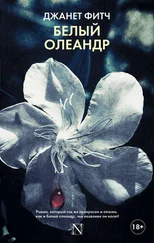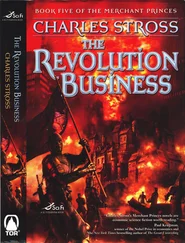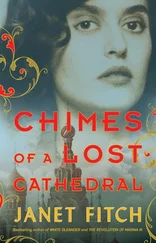Petrograd. The sound is bronze, and this is a story of bronze.
That night, the cusp of the New Year, 1916, we three prepared to conjure the future in the nursery of a grand flat on Furshtatskaya Street. From down the hall, the sounds of a large New Year’s Eve soiree filtered under the door—scraps of music, women’s high laughter, the scent of roasted goose and Christmas pine. Behind us, my younger brother, Seryozha, sketched in the window seat as we girls prepared the basin and the candle.
Below in the street, harness bells announced sleighs busying themselves transporting guests to parties all along the snow-filled parkway. But in the warm room before the tiled stove, we breathlessly circled the basin we’d placed on the old scarred nursery table, its weathered apron ringed with painted sailor boys, waiting for midnight. I stroked the worn tabletop where I’d learned to make my letters, those shaky A s and Б s and B s, outlined the spot where my brother Volodya gouged his initials into the tabletop. Volodya, now fighting in the snows of Bohemia, an officer of cavalry. And we brand-new women in evening gowns waited to see our fortunes. I close my eyes and breathe in the scent of that long-ago room, beeswax and my mother’s perfume, which I’d dabbed on my breasts. I still see Varvara in her ill-fitting black taffeta gown, and Mina in a homemade dress of light-blue velvet, and myself in russet silk with an olive overlay, my hair piled on my head, sculpted that morning by M. Laruelle in the Nevsky Passazh. My artistic brother, with his long poet’s locks, sported a Russian blouse and full trousers stuck into soft boots in shocking defiance of wartime custom, which dictates that even noncombatants strive for a military air.
I was a month shy of sixteen, the same age as the century, my brother one year younger. Waiting for midnight, our three heads converged over the basin of water: Varvara’s cropped locks, the dusty blue-black of a crow; Mina’s, ash blond as Finnish birch, woven into that old-fashioned braided crown she couldn’t be persuaded to abandon; and I, with hair the red of young foxes crossing a field of snow. Waiting to see our fortunes. Kem byt’? indeed.
A sun, a seal, a wedding ring.
A house, a plow, a prison cell.
It seems like a scene in a glass globe to me now. I want to turn it over and set the snow to swirling. I want to shout to my young self, Stop! Don’t be in such a hurry to peel back the petals of the future. It will be here soon enough, and it won’t be quite the bloom you expect. Just stay there, in that precious moment, at the hinge of time… but I was in love with the Future, in love with the idea of Fate. There’s nothing more romantic to the young—until its dogs sink their teeth into your calf and pull you to the ground.
On St. Basil’s Eve, we cast the wax in water.
And the country too had poured its wax
In the year of the 9 and the 6.
What sign did I hope to receive that night? The laurel crown, the lyre? Or perhaps some evidence of grand passion—some ardent Pushkin or soulful Blok. Or maybe a boy I already knew—Danya from dancing class, Stiva with whom I’d skated in the park the day before and dazzled with my spins and reckless arabesques. Or perhaps even an officer like the ones who lingered before the gates of our school in the afternoons, courting the senior girls. I see her there, staring impatiently into the candle flame, a girl both brash and shy, awkward and feigning sophistication in hopes of being thought mysterious, so that people would long to discover her secrets. I want her to stay in that moment before the world changed, before the wax was poured, and the future assembled like brilliant horses loading into a starting gate. Wait!
My younger self looks up. She senses me there in the room, a vague but troubling presence, I swear she catches a glimpse of me in the window’s reflection—the woman from the future, neither young nor old, bathed in grief and compromise, wearing her own two eyes. A shudder passes through her like a draft.
Midnight arrived in a clangor of bells from all the nearby churches, Preobrazhenskaya, St. Panteleimon, the Church of the Spilled Blood, bells echoing throughout the city, escorting in the New Year. Solemnly I handed the candle to Mina, who pushed her spectacles up on her nose and bent her blond head over the basin. Precise as the scientist she was, she dripped the wax onto the water as I prayed for a good omen. The lozenges of wax spun, adhered, linked together into a turning shape, the water trembling, limpid in candlelight. To my grave disappointment, I detected no laurel wreath, no lyre. No couples kissing, no linked wedding rings.
Varvara squinted, cocking her head this way and that. “A boot?”
Seryozha peered over our shoulders. Curiosity had gotten the better of him. He pointed with a long, graphite-dark finger. “It’s a ship. Don’t you see—the hull, the sails?”
A ship was good—travel, adventure! Maybe I’d become an adventurer and cross the South Seas, like Stevenson… though the German blockade sat firmly between me and the immediate realization of such a heady destiny. Or perhaps it was a metaphor for another kind of journey. Could not love be seen as a journey? Or the route to fame and glory? Try as I might to tease out the meaning, it never would have occurred to me its final dimensions, the scope, the nature of the journey.
Varvara poured for Mina. The wax coalesced—a cloud, a sleigh? We concurred—a key! She beamed. Surely she would unlock the secrets of the world, the next Mendeleev or Madame Curie. No one considered that a key might lock as well as unlock.
And Varvara? The swirling dollops resolved themselves into—a broom. We shouted with laughter. Our radical, feminist, reader of Kollontai, of Marx and Engels, Rousseau and Robespierre—a housewife! “Maybe it’s a torch,” she said sulkily.
“Maybe it’s your new form of transport,” Seryozha quipped, settling himself back into the window seat.
She sieved the little wax droplets from the water and crushed them together, threw the lump in the trash, wiped her wet hands on a towel. “I’m not playing this stupid game anymore.”
Seryozha refused his turn, pretending it was a silly girl’s pastime, though I knew he was more superstitious than anyone. And behind us, in the red corner, the icon of the Virgin of Tikhvin gazed down, her expression the saddest, the most tender I had ever seen. She knew it all already. The ship, the key, the broom.
With no more future to explore, and Varvara sulky with her news, we abandoned the peace and timelessness of the nursery to rejoin the current era out celebrating in the salon. No one had noticed our absence but Mother, who glared briefly but sharply in our direction, irritated that we’d missed the New Year’s toasts. Vera Borisovna Makarova wore a Fortuny gown with Grecian pleats and a jeweled collar, a Petersburg beauty with her prematurely silver hair and pale blue eyes. Mother took her social responsibilities seriously, orchestrating her parties like a dancing master, quick to spot a group flagging, a woman standing uncomfortably alone, men speaking too long among themselves. Our New Year’s Eve party famously brought together my father’s jurists and journalists, diplomats and liberal industrialists with Mother’s painters and poets, mystics and stylish mavens—in short, the cream of the Petrograd intelligentsia. Did this impress me? The British consul flirting with the wife of the editor of the Petrogradsky Echo ? The decadent poet Zinaida Gippius in harem pants taking another glass of champagne from Basya’s tray? It was our life. I didn’t realize how fragile such seemingly solid things could be, how soon they could vanish.
Читать дальше












